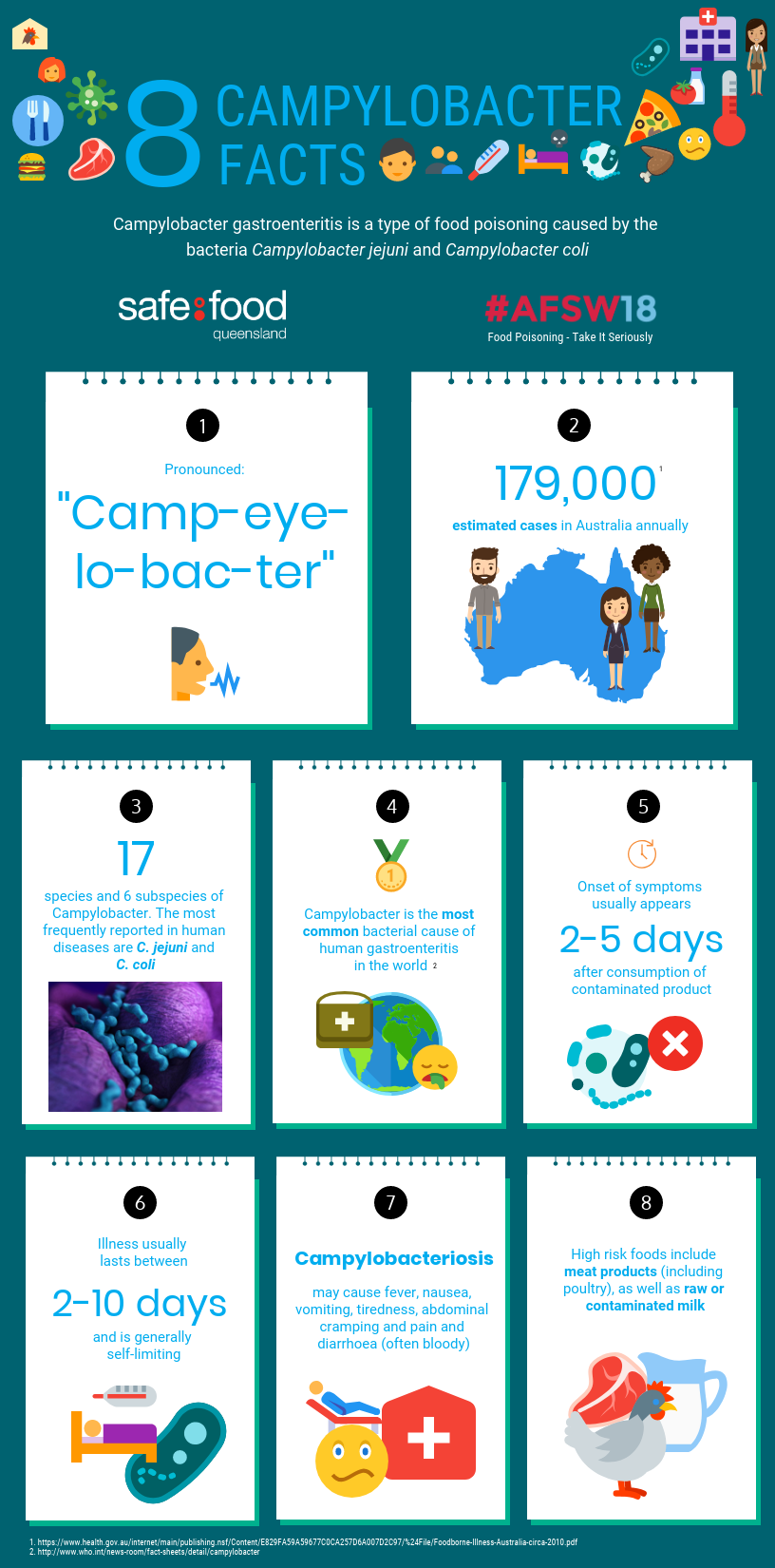Campylobacter gastroenteritis is a type of food poisoning caused by the bacteria Campylobacter jejuni and Campylobacter coli.
Campylobacteriosis, the disease caused by Campylobacter species, is the most common cause of food-borne disease in Australia.
Humans can become infected by:
- handling raw poultry meat
- cross-contamination while preparing food
- drinking contaminated, non-chlorinated water
- drinking unpasteurised milk
People can also become infected from handling infected animals and their faeces.
Campylobacteriosis may cause fever, nausea, vomiting, tiredness, abdominal cramping and pain and diarrhoea (often bloody). The infection usually lasts between 2-10 days and is generally self-limiting.
There is no specific treatment for mild infections, except rest and plenty of fluids. Appropriate antibiotics may eliminate the bacteria but may not shorten the duration of symptoms.
Campylobacter is not spread by coughing or sneezing.
To learn more about Campylobacter, check out the following Infographic:

Reduce Your Risk
To prevent the contamination of food:
- store raw foods (such as poultry and meat) in sealed containers in the bottom of the fridge or freezer to prevent any juices dripping onto other ready-to eat food. Cover all foods in the refrigerator and freezer to protect them from contamination.
- wash your hands immediately after going to the toilet or handling raw foods and before handling cooked or ready-to-eat food.
- use different chopping boards, trays, utensils and plates when preparing raw foods and ready to eat food. If you have only one chopping board wash it well in hot soapy water before reuse.
- thoroughly wash all dirt off any raw vegetables and fruits before preparing and eating them.
- dry dishes with a different cloth to that used for wiping hands or bench tops and wash dish cloths regularly.
People experiencing gastrointestinal symptoms should not handle or serve food, or be in contact with the elderly or children, until 2 days after the symptoms have stopped.
